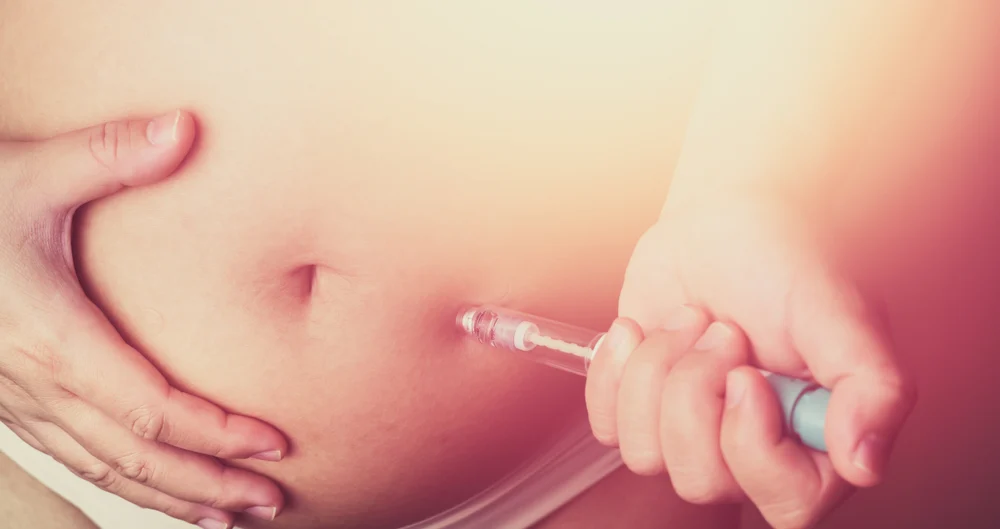Reduced Pregnancy Odds Found in Women Undergoing Ovary Stimulation and Contracting COVID.

According to a recent study, the chances of achieving a successful pregnancy could be diminished if an individual tests positive for a COVID-19 infection during a specific stage of fertility treatment.
A recent study led by Fen Tian and her team from Central South University in China suggests that couples undergoing controlled ovarian stimulation, a critical phase of in vitro fertilization (IVF) treatment, should be informed by doctors about the potential impact of a COVID-19 infection. The research emphasizes that such infections could influence the quality of embryos and hinder the development stage leading up to the formation of a “blastocyst,” a crucial early stage in embryonic development.
However, some fertility experts have expressed reservations regarding the study, which observed 585 couples in China. The research utilized PCR testing to identify individuals who tested positive for a COVID-19 infection during ovarian stimulation, with 135 participants testing positive.
Dr. Lilli Zimmerman, a specialist in reproductive endocrinology, infertility, and obstetrics/gynecology at Northwell Health in Manhasset, N.Y., who was not involved in the study, highlighted the relatively small sample size of the study, despite being the largest conducted thus far. She emphasized the need for further research on this topic, noting that COVID-19 is still a relatively new type of infection even years into the pandemic. Zimmerman believes that multiple studies over an extended period will be necessary to fully understand the impact of COVID-19 infections on reproductive outcomes, particularly in the context of in vitro fertilization (IVF).
According to Dr. Lilli Zimmerman, an expert in reproductive endocrinology, infertility, and obstetrics/gynecology at Northwell Health in Manhasset, N.Y., policies regarding COVID-19 testing and procedures can vary significantly across different healthcare systems and have undergone numerous changes throughout the course of the pandemic.
Zimmerman highlighted that delaying in vitro fertilization (IVF) can have negative consequences for patients. One of these drawbacks is that as time passes, the natural process of aging continues, which can potentially impact fertility. Furthermore, abruptly halting treatment before a planned egg retrieval in the later stages of the cycle may result in ovarian hyperstimulation and subsequent pain for the patient.
The study in question employed a retrospective research design, utilizing data from seven reproductive centers located in four provinces throughout China. The data collection spanned from October to December 2022, providing insights into the impact of COVID-19 infections on fertility outcomes within that timeframe.
The study revealed a significant correlation between COVID-19 infections and reduced quality of embryos and blastocyst formation during controlled ovarian stimulation, when compared to couples unaffected by the infection.
Dr. Lindsay Kroener, a reproductive endocrinology and infertility specialist at the University of California, Los Angeles Health, emphasized the implications of the study’s findings. It suggests that it would be prudent to avoid initiating an in vitro fertilization (IVF) cycle in individuals known to have a COVID-19 infection. Additionally, during ovarian stimulation, extra caution should be exercised to minimize the risk of exposure to an infection.
Dr. Kroener highlighted that the study did not assess clinical outcomes such as pregnancy rates or live birth rates resulting from embryos transferred in these cycles. Thus, while the study provides valuable insights into the impact of COVID-19 infections on embryo quality, further research is needed to fully understand the broader implications on successful pregnancy outcomes.
Dr. Lindsay Kroener further commented on the study’s findings, stating that although the data demonstrates a negative impact on blastocyst development and quality when either partner or both are infected with SARS-CoV-2, the actual difference in outcomes remains relatively small.
Additionally, Kroener noted that the infection does not appear to affect the number of retrieved oocytes (immature eggs). She emphasized that even in cycles from patients infected with SARS-CoV-2, usable and high-quality embryos were still obtained.
Dr. Kroener emphasized that a positive COVID-19 test does not automatically necessitate the cancellation of an IVF cycle. While active infection can have a detrimental effect on embryology outcomes, the study shows that viable embryos can still be produced from infected patients.
Dr. Lindsay Kroener further elaborated on the decision-making process regarding whether to proceed with ovarian stimulation and retrieval or cancel the IVF cycle in light of a positive COVID-19 infection. She emphasized that various factors come into play, including patient counseling, the stage of stimulation the patient has reached, the investment in terms of time and medication, and whether the fertility center permits retrieval to proceed with an active infection.
Concerns about anesthesia-related complications for patients with respiratory symptoms from a COVID-19 infection might also prompt an infertility center to delay or cancel procedures. Additionally, there is a risk of potential exposure to the virus for staff and other patients, further supporting the cautious approach.
Dr. Kroener highlighted that embryo transfer would not be performed in patients with an active COVID-19 infection due to the associated risks during pregnancy.
Explaining the process of controlled ovarian stimulation during IVF, Kroener mentioned that it involves daily injections of gonadotropins, hormonal medications, over a period of eight to 12 days. Patients are regularly monitored through transvaginal ultrasounds and blood tests to determine the optimal follicle size for triggering ovulation.
Egg retrieval typically takes place approximately 35 to 36 hours after administering a trigger shot. The eggs are extracted from the ovarian follicles using a needle.
Dr. Zimmerman, another expert, noted that previous studies have not detected the presence of the virus in follicular fluid.
Dr. Zimmerman emphasized the uncertainty regarding long-term outcomes, which has been a key aspect of patient counseling since the beginning of the pandemic. The potential effects on babies born through IVF and any long-term consequences remain unknown, making it challenging to provide definitive guidance in this regard.



